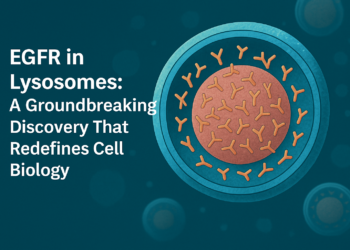A new clinical trial (June 2025) investigates ATR‑04, a microbiome-based topical therapy using engineered Staphylococcus epidermidis to treat EGFR inhibitor–related rashes. A breakthrough for side effect management in oncology.
ATR‑04: Microbiome Medicine Tackling EGFR Inhibitor Skin Toxicities
A phase 1/2 clinical trial (ATR04‑484), launched in early June 2025, is testing ATR‑04 — a first-in-class live biotherapeutic containing genetically modified Staphylococcus epidermidis — for the treatment of cutaneous toxicities caused by epidermal growth factor receptor inhibitors (EGFRi), commonly used in cancers such as non-small cell lung cancer and colorectal cancer.
These rashes (acneiform eruptions, xerosis, pruritus) are often painful, cosmetically distressing, and a leading cause of treatment interruption in EGFR-targeted therapy.
How It Works: Engineered Skin Probiotic with Built-in Safety
ATR‑04 is composed of a live strain of S. epidermidis that has been:
• Genetically modified to lack antibiotic resistance genes, improving safety;
• Made auxotrophic, meaning it requires external nutrients to survive, preventing long-term colonization.
The goal is to restore balance to the skin microbiome, which is often disrupted by EGFR inhibition, promoting anti-inflammatory signaling and improving skin barrier function.
The ATR04‑484 Study: Trial Design and Outlook
• Type: Multicenter, randomized, double-blind, placebo-controlled;
• Goals: Phase 1b focuses on safety/tolerability; Phase 2a explores dosing and preliminary efficacy;
• Status: First patient has been dosed as of early June 2025;
• Regulatory support: ATR‑04 has received FDA Fast Track Designation, underscoring its potential in addressing a significant unmet medical need.
Why This Matters for Cancer Patients
1. Improved quality of life – Fewer and less severe rashes mean less discomfort and emotional burden.
2. Enhanced treatment adherence – Preventing dose interruptions can help maintain therapeutic benefit.
3. Microbiome-first approach – This trial exemplifies how microbiota modulation can support oncology care beyond direct tumor targeting.
Conclusion
ATR‑04 represents a novel biotherapeutic strategy in oncology, not aimed at the tumor itself, but at improving tolerability of targeted treatments like EGFR inhibitors. By leveraging microbiome science, ATR‑04 could transform how oncologists manage one of the most common — and troublesome — side effects of precision cancer therapy.
With clinical validation underway and strong regulatory support, ATR‑04 may soon become a key tool in supportive cancer care
Author: Alessia Nobile



































